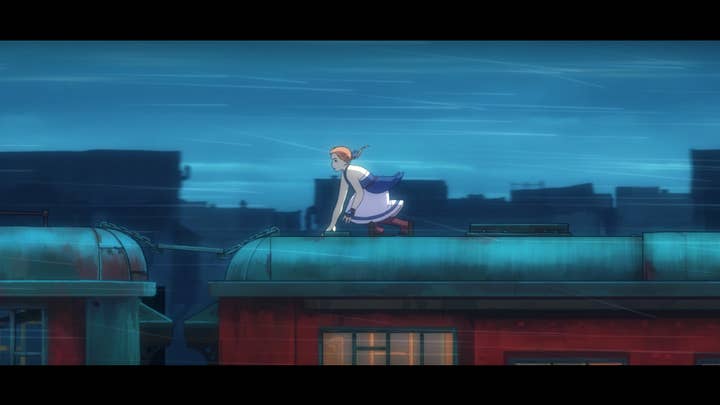Creating a harmony of music and game development
Forgotton Anne's Peter Due talks about the benefits of having composers working with devs from a project's start
At the DICE Summit in Las Vegas, Peter Due gives off the vibe of someone just happy to be there. The Danish composer speaks with GamesIndustry.biz on the afternoon before the DICE Awards, where he is up for the Outstanding Achievement in Original Music Composition for his work on Throughline Games' Forgotton Anne.
It's sort of a David vs. Four Goliaths situation, as Due's work on the charming indie game is nominated alongside a slate of big-budget AAA titles, including God of War, Marvel's Spider-Man, Detroit: Become Human, and Tetris Effect. As for how Forgotton Anne finds itself honored alongside more heavily marketed offerings, Due believes the game benefitted greatly from what was in his experience an uncommon creative approach.
"What was interesting about working on Forgotton Anne was that I was part of the process from the very beginning," Due says. "It was very different from when I work in films and TV, where I come in at the end when everything's done. Here, I got to be a part of the development process from the very beginning, and that was very inspiring for me. The music and the development of the story, the characters, and the artwork went on side by side and were developed together. And I know for a fact the people who were writing the story and doing artwork were listening to my music while doing it, so we kind of influenced each other."
Due says it's more typical for him to be invited onto a project well underway, and sometimes not in the truest spirit of collaboration.
"Often they would call me and say, 'We need some music, can it be done tomorrow?' or something like that," Due says. "I would say, 'I can do my best, but if you give me a week more, it will be better.' It is possible to do something really fast that works, but if you have a little bit more time, it does get better. Especially when you have a bigger project like Forgotton Anne. That's part of the reason it succeeded, because we all had enough time to try different things."
Due's work on projects usually can be measured in a few months or even weeks. He first started working on Forgotton Anne in the summer of 2014, and the game launched four years later. Due says there were sometimes lengthy pauses -- six-month breaks where he wasn't doing much on the game -- but the project benefitted from having that time to breathe.
"It's difficult for some directors to express their thoughts about music. It's another language"
"That just gave me the opportunity to go back and look at what I'd done earlier and say, 'That's OK, but I have some ideas as to how to make it even better,'" Due says. "I personally liked that. I think some of my colleagues would not like to do that too much, but I thought it was very nice to work [that way]."
Regardless of how a given composer feels about it, Due believes that in most cases the end result is better when the musical creatives are involved with a project from the very beginning because it "makes it possible for the director and composer to have a mutual idea about where we're going and why we're going there." And while it's by no means unprecedented in games, Due's perception is that it's not terribly common, either, for a variety of reasons.
"It could be that sometimes the music is just not thought about budget-wise from the beginning," Due says. "It becomes this thing you think about last minute, like 'God, we have to find some music.' I've heard this many times. It could also be that it's difficult for some directors to express their thoughts about music. It's another language.
"One thing I really like about Throughline Games is they have some people who are really good at talking about the music. It's important. Music is just a non-verbal language. It's not about words. It's about emotions. Somewhere in the composer-director relationship, these emotions have to be transferred into really specific things the composer has to do with the piano, or how he writes the music. And this transition is not easy."
In some ways, it's actually in composers' best interests not to be involved from the start. Due concedes that if he is looking to maximize his bank account, a series of quicker turn-around projects might be better than devoting that much time and thought to a single project. Then again, money's not the only thing a person takes away from their work.
"I don't feel I have sacrificed anything, actually," Due says of his work on Forgotton Anne. "It was just a rewarding project to be on in many levels, artistically. It's been very inspiring and fun to do for many reasons. It was 100% worth it."
God of War would go on to win the Outstanding Achievement in Original Music Composition award that night, but Due may yet get his proper recognition. He is the in-house composer at Throughline now, and is working on a couple projects for the studio. Those projects are still in the early stages, meaning there's plenty of time for him to leave his mark on the games, and vice versa.










